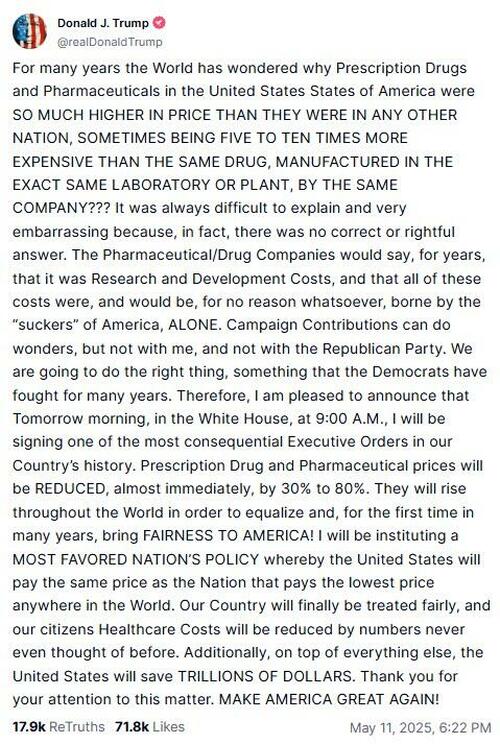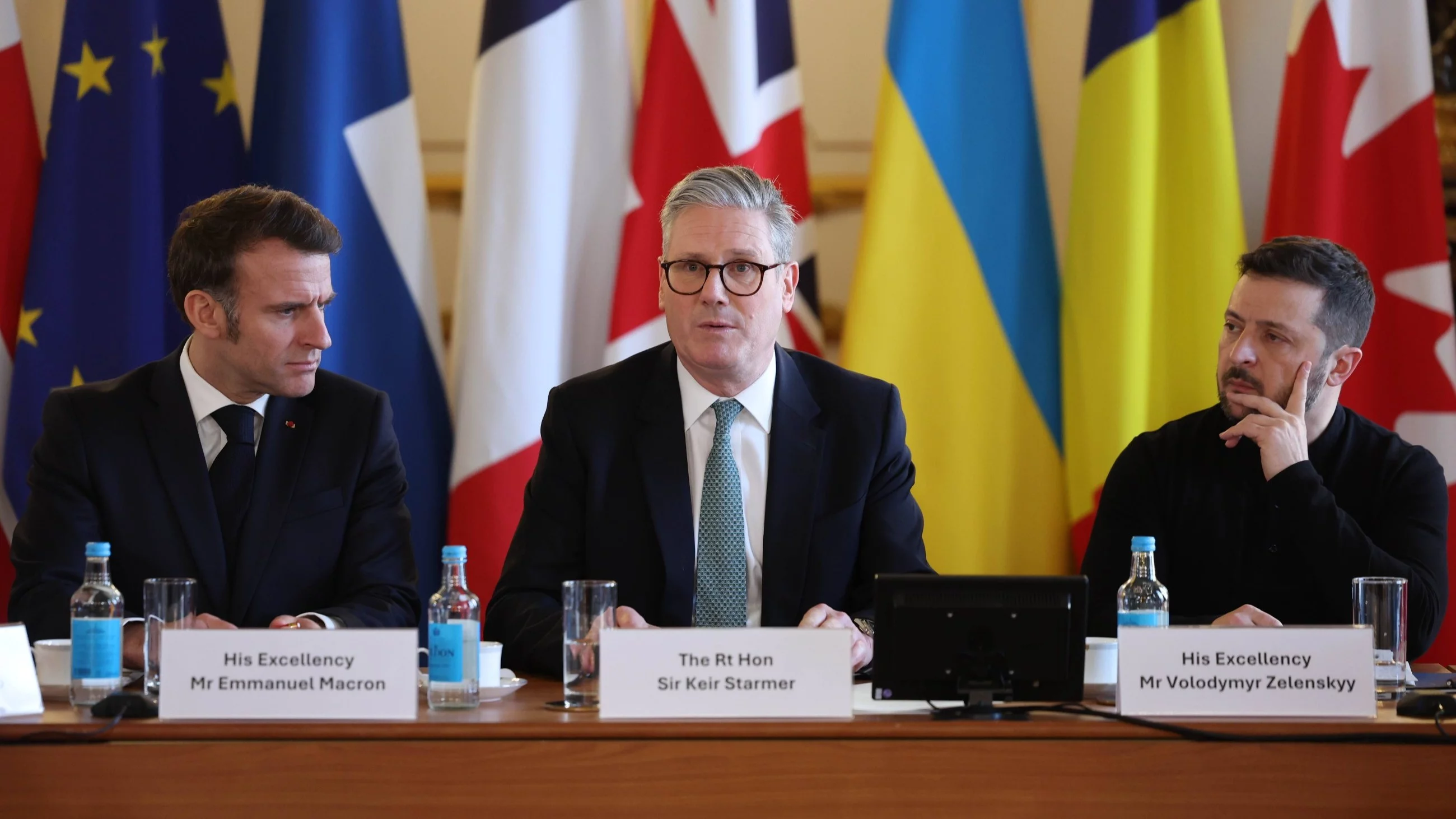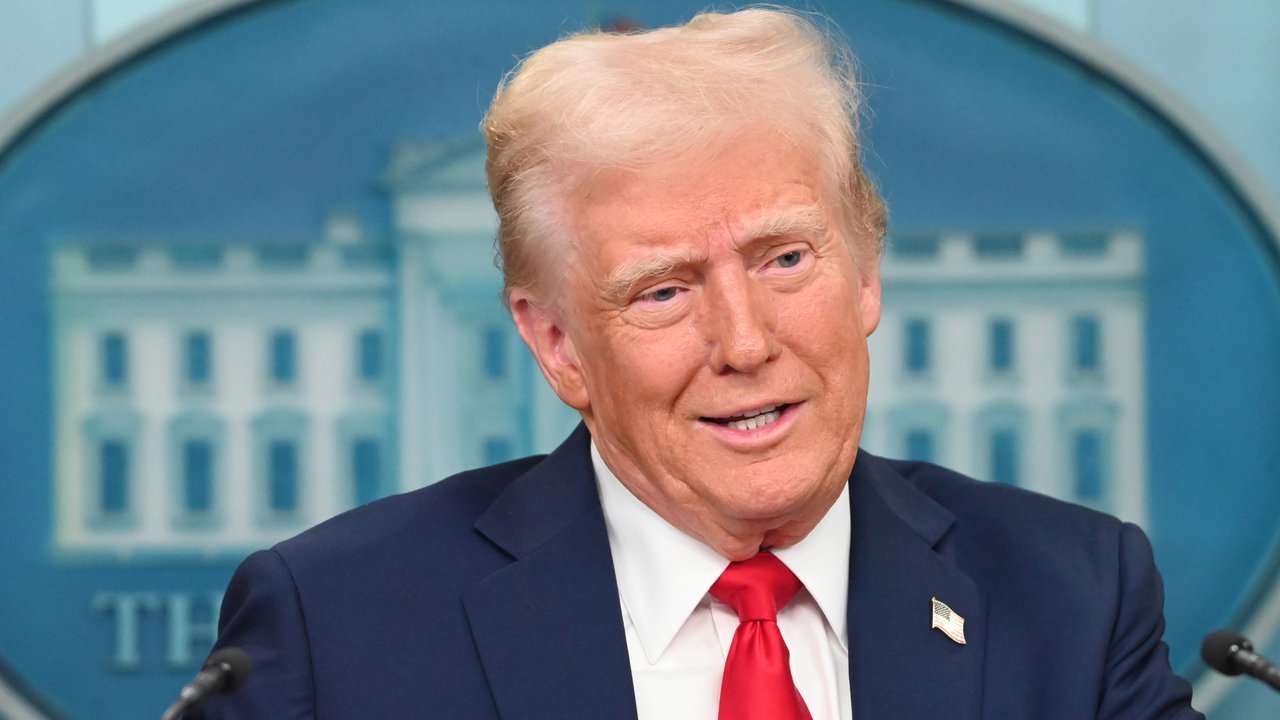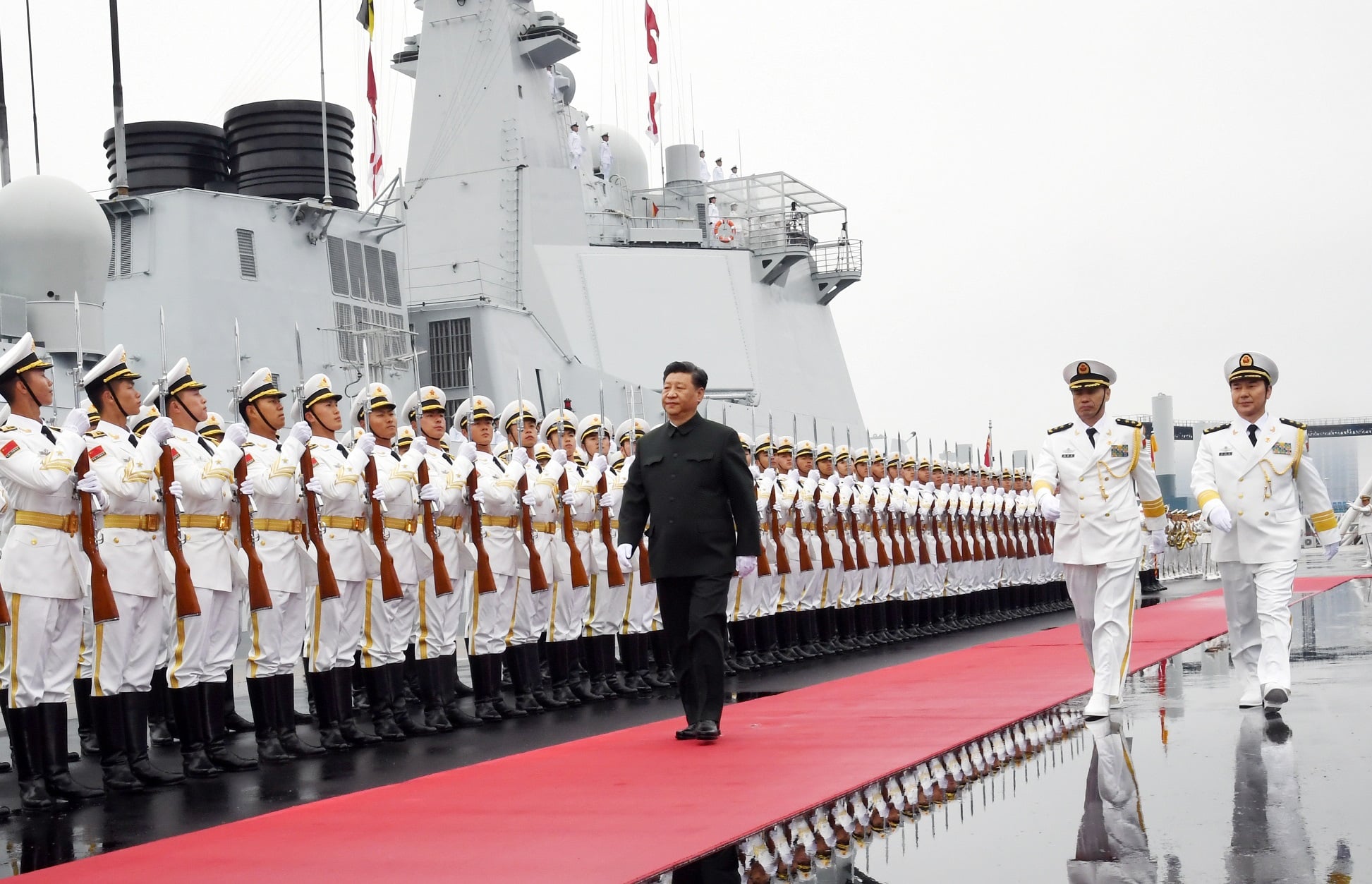
Trump Announces Order To Reduce Prescription Drug Prices By Up To 80%
President Donald Trump announced late on May 11 that he would sign an executive order which would reduce prescription drug prices in the US by 30% to 80% “almost immediately” while also raising drug prices “rise throughout the World in order to equalize and, for the first time in many years, bring FAIRNESS TO AMERICA!”
To achieve that, Trump would institute what he called a most-favored nation policy “whereby the United States will pay the same price as the Nation that pays the lowest price anywhere in the World.” Healthcare costs in the US “will be reduced by numbers never even thought of before,” he said.

Trump’s Truth Social post, which was preceded by an earlier one that promised as one of „most important and impactful” statements he has ever issued, didn’t detail how the order would work.
He also didn’t specify potential limits on the policy, such as whether it would apply only to government programs such as Medicare or Medicaid, if it would be limited to certain drugs or categories of drugs or if the White House sees a way to apply this more broadly.
Asian pharmaceutical companies fell in early Monday trading. Japanese drugmaker Chugai Pharmaceutical Co. dropped as much as 7.2%, the most in a month, with peers Daiichi Sankyo and Takeda Pharmaceuticals losing around 5%. In South Korea, SK Biopharmaceuticals Co., Celltrion Inc. and Samsung Biologics Co. all fell over 3%.
Americans pay the most in the world for medicines, fueling innovation and driving the growth of the pharmaceutical industry. Drugmakers have said revamping the system will slash revenue and stifle the development of breakthrough therapies that have the potential to lengthen and improve lives.
Trump cited the industry’s argument, but said it meant that “the ‘suckers’ of America” ended up bearing those costs “for no reason whatsoever.”
As Bloomberg notes, the US government already negotiates prices for some of the highest-cost medicines used in Medicare health insurance under the Inflation Reduction Act, which passed in 2022 under former President Joe Biden, with more slated to be added every year. The first two rounds of drug price negotiations haven’t included physician-administered drugs, but the next round might.
Billionaire hedge fund manager Bill Ackman suggested Trump might have been inspired by an idea he floated on X in March, when he said the best way to reduce US drug prices “is to make it illegal for drug companies to sell the same drugs abroad for lower prices than they sell them for here.”
In his first term, Trump proposed a Medicare pilot program for drugs with no low-cost generic competition that are given in doctor’s offices, saying he wanted to bring prices in line with countries like France and Japan where they cost dramatically less.
That plan, which would have phased in over three years, aimed to ensure Medicare paid the lowest price offered to a group of 22 nations.
The effort was struck down in federal court after drug companies challenged it, claiming the administration hadn’t properly carried out the rulemaking process. The Biden administration didn’t appeal that finding, and instead pursued legislation that led to the Inflation Reduction Act.
Tyler Durden
Sun, 05/11/2025 – 21:15
















